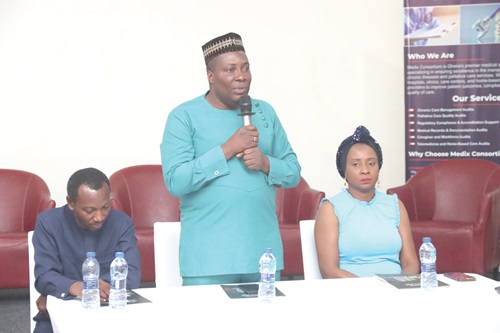
GPCA seeks greater support for palliative care initiatives
The President of the Ghana Palliative Care Association (GPCA), Dr Stephen Ayisi Addo, has called for increased collaboration from individuals and organisations to improve palliative care services in Ghana.
Speaking at a fund-raising event in Accra last Saturday, he noted that providing comprehensive care for individuals with life-limiting illnesses was a collective responsibility.
Collaboration
Dr Addo highlighted the need for a well-structured policy to guide the implementation of palliative care practices in the country.
"Palliative care in Ghana is currently formless and void. Though there are individuals and organisations doing commendable work, a unified approach is lacking.”
"This is why it is important to bring people together and develop a focused strategic plan that will lead to a comprehensive policy," he said.
Dr Addo emphasised the importance of joining the GPCA to contribute to the association's efforts.
"By coming together, we can strengthen our impact and ensure that palliative care becomes a priority in Ghana," he said.
He proceeded to invite palliative care service providers, individuals who have experienced palliative care, to join the association in this important cause."
Goal
The GPCA aims to establish a centre of excellence for palliative care practice, research, regulation and standards of care. This centre will serve as a reference point for improving the quality of palliative care services throughout the country.
Dr Addo also highlighted the need for increased funding to support palliative care initiatives and meet the growing demand for palliative care services.
Inclusivity
For her part, the Chairperson of the Research Committee of the GPCA, Dr Bisi Adewale, called for a broader inclusion of patients and families in the palliative care process. She asserted that palliative care needed a multidisciplinary approach, which included not only medical practitioners but also social workers and legal practitioners.
“We don’t need to exclude them. It shouldn’t be all about the healthcare professionals,” she urged.
